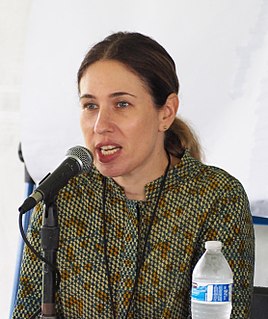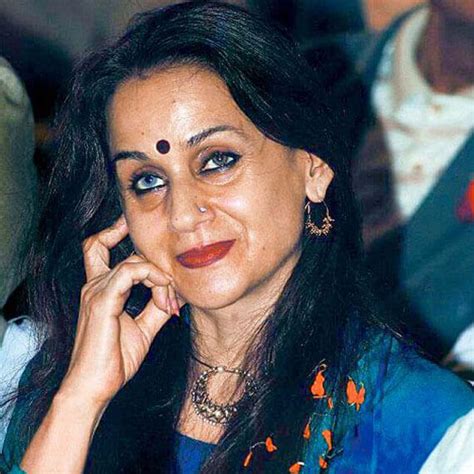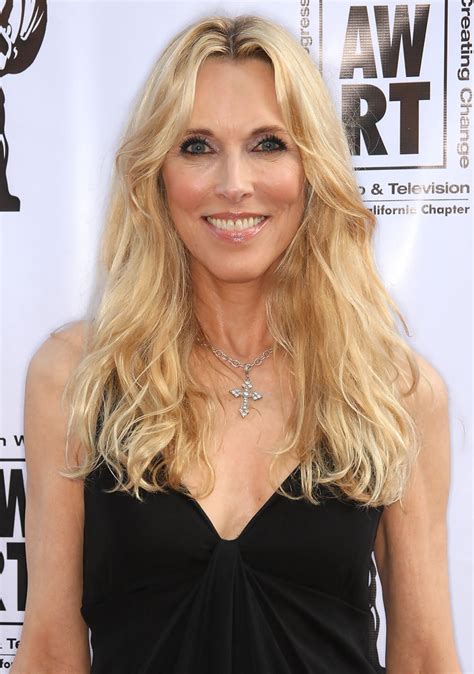A Quote by Brenda Peterson
Cristina Eisenberg weaves her observations as a scientist and her personal experiences afield into a resonant account about the web of life that links humans to the natural world. Grounded in best science, inspired by her intimate knowledge of the wolves she studies, she offers us a luminous portrait of the ecological relationships that are essential for our well-being in a rapidly changing world. The Wolf's Tooth calls for a conservation vision that involves rewilding the earth and honoring all our relations.
Quote Topics
About
Account
Being
Best
Best Science
Calls
Changing
Conservation
Earth
Ecological
Essential
Experiences
Grounded
Her
Honoring
Humans
Inspired
Intimate
Involves
Knowledge
Life
Links
Luminous
Natural
Natural World
Observations
Offers
Our
Personal
Personal Experience
Personal Experiences
Portrait
Rapidly
Relations
Relationships
Science
Scientist
She
Studies
Tooth
Us
Vision
Web
Web Of Life
Well
Well-Being
Wolf
Wolves
World
Related Quotes
In People magazine, Madonna said her life has been exhausting since she started her world tour. She said there isn't a second of her life that isn't taken up looking after her family or thinking of her show - her day is filled with problems of work and family. Someone should tell her, everyone else calls that, life.
No one really understood music unless he was a scientist, her father had declared, and not just a scientist, either, oh, no, only the real ones, the theoreticians, whose language was mathematics. She had not understood mathematics until he had explained to her that it was the symbolic language of relationships. "And relationships," he had told her, "contained the essential meaning of life."
In my earliest of years, my mother was a huge force in my life. She was for all intents and purposes, a single parent. My father had abandoned us. He was an alcoholic and a physical abuser. My mother lived through that tyranny and made her living as a domestic worker. She was uneducated but she brought high principles and decent values into our existence, and she set lofty goals for herself and for her children. We were forever inspired by her strength and by her resistance to racism and to fascism.
Lyra learns to her great cost that fantasy isn’t enough. She has been lying all her life, telling stories to people, making up fantasies, and suddenly she comes to a point where that’s not enough. All she can do is tell the truth. She tells the truth about her childhood, about the experiences she had in Oxford, and that is what saves her. True experience, not fantasy - reality, not lies - is what saves us in the end.
When I lost my wife I had a whole different concept of her life. She lived 21 years and people who knew her know it wasn't about the great things she did on this earth. It wasn't that she had money or had popularity, it was that she loved Jesus Christ more than anything else in this world. That was how she related to the world.
My mother has made choices in her life, as we all must, and she is at peace with them. I can see her peace. She did not cop out on herself. The benefits of her choices are massive-a long, stable marriage to a man she still calls her best friend; a family that has extended now into grandchildren who adore her; a certainty in her own strength. Maybe some things were sacrificed, and my dad made his sacrifices, too-but who amongst us lives without sacrifice?
A queen is wise. She has earned her serenity, not having had it bestowed on her but having passer her tests. She has suffered and grown more beautiful because of it. She has proved she can hold her kingdom together. She has become its vision. She cares deeply about something bigger than herself. She rules with authentic power.
A beloved student of mine told me she believed the earth was approximately 6,000 years old. She was smart, she was thoughtful, and she was wrong. But I couldn't discount her - I respected her too much. So I debated with her, using every bit of science and logic I had, but I still failed to convince her that the earth was billions of years old.
I think the relationship [in Aquarius] with her nephew shows that she's not nostalgic. She just wants to preserve what is important to her - her records, her books, even some furniture. She doesn't want to leave that house because it is her home. That is where her kids were born. After moving so much in my life, I was touched by Clara's need to stay in that apartment. I love her life, and that may be why I connected to her so strongly. We are the most alike when we are fighting for our rights.
In a strange way, Louise Erdrich is perhaps our least famous great American writer; she is not reclusive, but she is reticent, and her public appearances give the impression of a carefully controlled performance. But Erdrich has also shared many of her most intimate emotions and experiences, in some form, in her novels.
Her life was a slow realization that the world was not for her and that for whatever reason she would never be happy and honest at the same time. She felt as if she were brimming always producing and hoarding more love inside her. But there was no release. table ivory elephant charm rainbow onion hairdo violence melodrama honey...None of it moved her. She addressed the world honestly searching for something deserving of the volumes of love she knew she had within her but to each she would have to say I don't love you.
But ultimately I do not believe that she was only matter. The rest of her must be recycled, too. I believe now that we are greater than the sum of our parts. If you take Alaska's genetic code and you add her life experiences and the relationships she had with people, and then you take the size and shape of her body, you do not get her. There is something else entirely. There is a part of her greater than the sum of her knowable parts. And that part has to go somewhere, because it cannot be destroyed

































